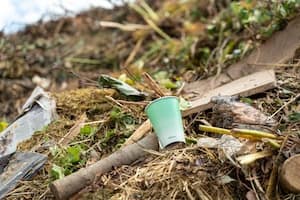[[{“value”:”
A new research study in South Australia shows that composting food waste and compostable packaging via council provided kerbside FOGO (food organics and garden organics) bins is a viable and effective waste management solution.
Backed by BioPak, the research was a collaboration between Compost Connect and Edge Impact, with the objective to understand compostable packaging recovery outcomes, success factors, and the impact of compostable packaging on improving food waste and packaging diversion.
The report details seven key findings that fundamentally point to the success of South Australia’s organics recovery system. One of the core takeaways is the major role compostable packaging can play in organic waste recovery, where certified compostable packaging was found to have no documented negative effects on the quality of the end product – compost.
“This report is an excellent step in the right direction, showcasing that composting food waste and compostable packaging is a viable option,” says Dr Thava Palanisami, Associate Professor from the University of Newcastle.
Compostable packaging as a viable solution to Australia’s current waste crisis. Image: BioPak.
Compost Connect Board Member and BioPak CEO Gary Smith says this research serves as inspiration for other states, territories and countries around the world, highlighting the potential for large-scale composting initiatives to address our organic waste problem and create a nutrient-rich resource instead.
“Although there’s still work to be done to reduce contamination and ensure organic waste and packaging end up in the right place – South Australia’s research demonstrates the effectiveness of public education campaigns and action on a government level. This provides a promising pathway forward,” Gary says.
Other findings showed the success of South Australia’s organics recovery system, the effectiveness of government-led initiatives and policies, the need for public education on composting technology, the enforcement and industry collaboration prevent contamination, and the challenges of compostable packaging identification.
The study also found a 2 per cent contamination rate in kerbside FOGO. While noted as a small percentage, it was acknowledged that it poses a challenge to composting outcomes.
The report also champions South Australia’s position as a leader in established systems, policies and infrastructure to deal with a large volume of FOGO. Jeffries, a leading commercial compost facility, is noted for its advanced recycling technologies and collection partnerships, which have the potential to be replicated at national and global level.
“}]]


